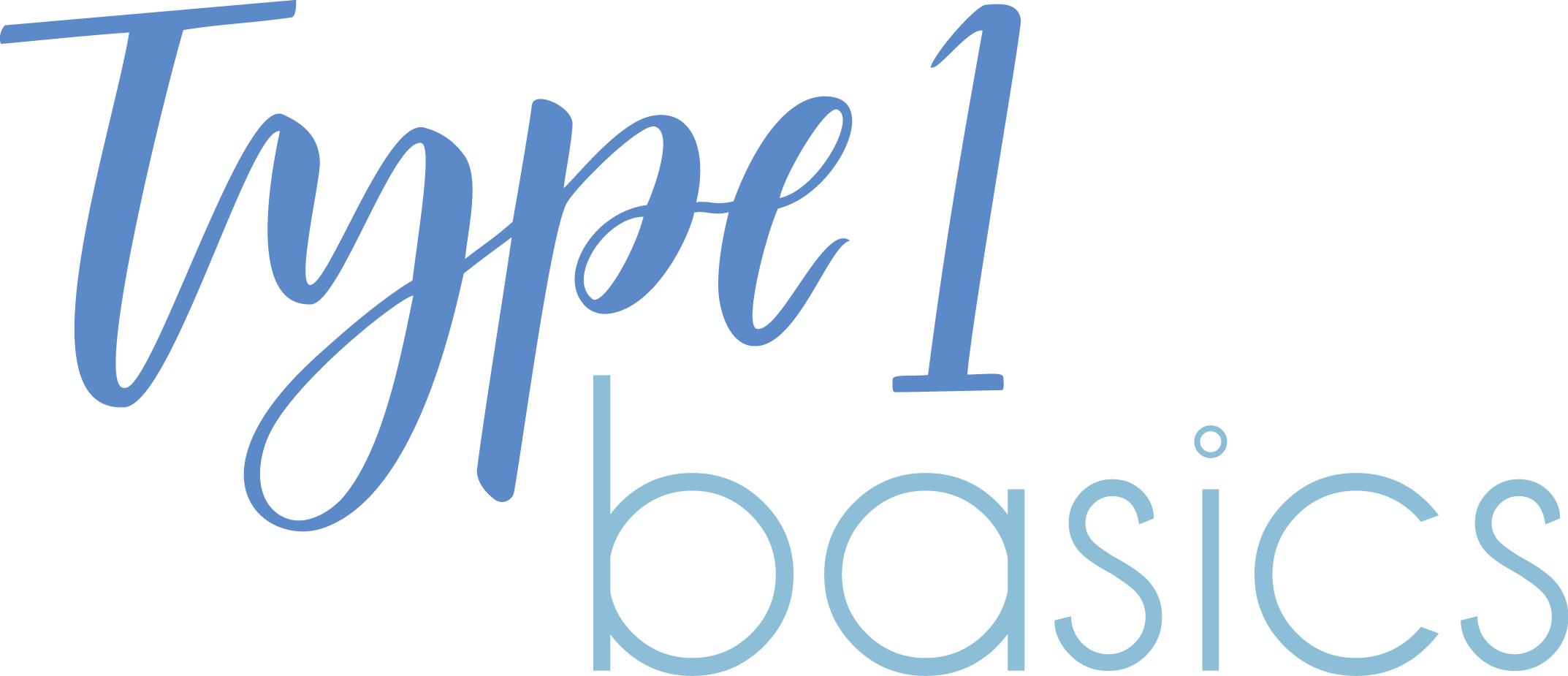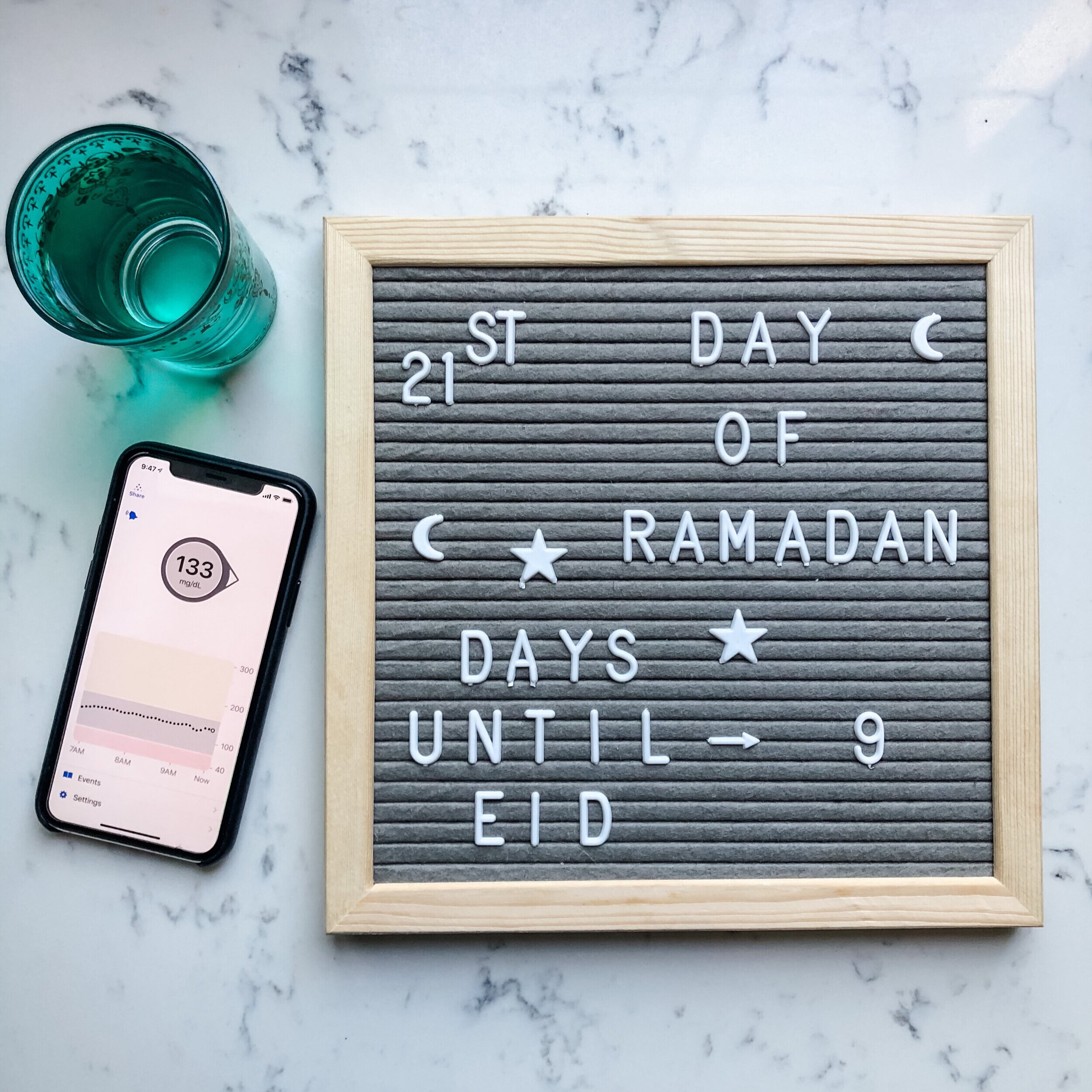Fasting with Type 1 Diabetes
Fasting during Ramadan is one of the 5 pillars of Islam, and involves abstaining from water and food from sunrise until sunset (the first fast this year was from 4:57 am until 7:29 pm and the last fast will be from 4:26 am until 7:51 pm). The number of hours you fast will depend on where you live since daylight hours will vary. As someone living with Type 1 Diabetes, I am exempt. No Muslim will tell you that it is required of me. But just like everything I do around my Type 1 management, how I choose to practice my religion is a very personal choice.
I was 8 years old when I was diagnosed with Type 1 Diabetes, which is usually the age a lot of Muslim kids start to try fasting for a few days in the month, sometimes starting out with ‘half fasts’ (having sehri - the meal to start the day before the sun rises), eating a lunch in the middle of the day and then waiting till iftar (the meal to break your fast after sunset). I participated in half fasts here and there through the years but it wasn’t until high school (at which point most Muslim kids are fasting) that I tried to fast full days. I went to an International high school in Kuwait, and I have a distinct memory of a good friend of mine pleading with me not to fast because he thought it wasn’t good for me. It was one of the few times my Type 1 Diabetes was even a topic of discussion with my friends, because for most of high school, I tried to minimize the role it had in my life.
The first year I managed to keep all of my fasts for the entire month was my sophomore year at university. The days were shorter so it wasn’t as difficult to keep blood sugars stable between sunrise and sunset without food, and it was also my first time trying to fast while on an insulin pump. Fasting blood sugars are actually easier since food and inaccurate carb counts and carb ratio’s aren’t a part of the equation. I was ok with my blood sugars being a lot higher then too, so I wasn't ever worried about lows.
One of my favorite Ramadan’s was back in 2009 when I was going through my Peace Corps training. As a Peace Corps volunteer, you go through 3 months of intensive training before you are sworn in as a volunteer. The first part of my training took place in St. Lucia with all the other volunteers that would be serving in the Caribbean region. To say that it was hot is an understatement. There were set times for the meals we would eat. But I somehow kept all of my fasts, while also retaining all the information I was given. Every night, they would serve fruit with dinner. So every single morning, I ate two bananas and chugged two water bottles, one of them usually had some emergen-c added to it that I had packed specifically for Ramadan. When everyone else was eating lunch, I would slip away to my room to say my prayers. Most people who join the Peace Corps are beyond open minded and love learning about other cultures and religions. I was definitely the first Muslim any of my fellow Peace Corps trainees had ever interacted with in such close quarters with, and they were all so incredibly respectful and helpful, grabbing extra bananas and water bottles for me.
I was still struggling with Diabulimia at the time. But I didn’t let myself run high during Ramadan mainly because I didn’t want to be insanely thirsty while on a humid island, and during Ramadan I felt a stronger pull to take care of the body God had given me. Keeping my blood sugars in the 180 range was fine by me, because at that point my body was so used to always being higher that 180 didn’t make me feel low, didn't give me a headache and didn’t make me thirsty. So that was my goal then.
As you can see, my time in range hasn’t been perfect. I’ve had more lows at night as a result of my being more aggressive to prevent the post-iftar spike, but it is a learning curve.
Then the days got longer. The Islamic calendar is based on a Lunar calendar, so Ramadan starting creeping into summer months. I started actually taking care of my blood sugars and not feeling good at 180. My husband and I tried fasting together, but neither of us could figure out how to stop the post-iftar spike that was happening every night or how to stop the lows that would happen a few hours before iftar. We weren’t on CGMs, we weren't as great about understanding the active time for insulin or what basal testing was. We were high all night and low all day. I was still adjusting to taking care of my blood sugars at all, so we both decided to practice Ramadan in our own way while still managing our blood sugars safely. We did half fasts, gave up TV, and prayed more. Then I got pregnant or was nursing for four years in a row which is a time when women are exempt from fasting anyway.
Last year I decided to try fasting again. I had been looping for a while, and felt like I had my settings pretty dialed in. I figured it would be like a really good basal test. I was wrong about that, because your settings change after changing your routine so drastically for so long. But I safely kept a little over 2/3rds of my fasts last year, the rest of them only being broken by a few skittles or smarties (which I despise so it didn't feel like I was eating for pleasure). It took me a few months after Ramadan to figure out how to drink coffee again without spiking my blood sugars.
This year, we are already closing in on the last days of Ramadan. My experience has been relatively similar to last year, except I was mentally prepared for the adjustments in settings and had less lows in the first week than I did last year. I had more trust that Loop would catch it and bring me up. I haven’t had many spikes after meals (the ones I have had are because of what I ate, just like I would have otherwise). I have been more comfortable with accepting that it is a learning process, that my body adapts and that every single day is different. I do the best I can every single day, and Ramadan is no different. There are days where I feel like I nailed it, and there are days where I know I could have done better.


